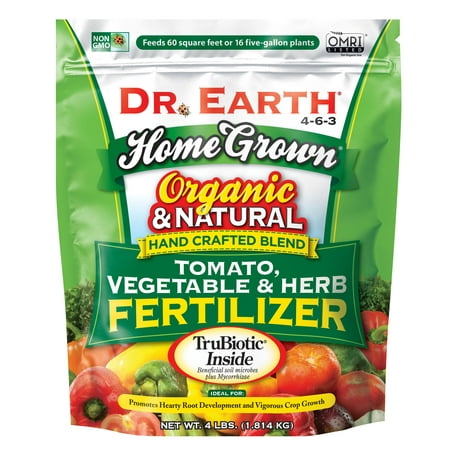Best Organic Fertilizers for Vegetable Gardens

Best Organic Fertilizers for Vegetable Gardens
Growing your own vegetables is incredibly rewarding, but it's essential to feed your garden soil with the right nutrients. That's where organic fertilizers come in. They're eco-friendly, sustainable, and fantastic for vegetable growth. So, let's dive into the world of best organic fertilizers for vegetable gardens.
Why Choose Organic Fertilizers?
Before we get our hands dirty, let's understand why natural fertilizers are a great choice. Unlike synthetic fertilizers, organic ones feed the soil as well as the plants. They improve soil structure, increase water retention, and encourage beneficial microbial activity. Plus, they're renewable and sustainable. It's a win-win!
Understanding NPK
Before we explore the best organic fertilizers, let's decode NPK. You'll see these letters on fertilizer labels, and they stand for Nitrogen (N), Phosphorus (P), and Potassium (K). These are the primary nutrients that plants need.
Compost: The Gardener's Gold
Compost is the ultimate organic gardening champion. It's made from decomposed organic matter like food scraps and yard waste. Compost improves soil structure, retains moisture, and provides a variety of nutrients. Plus, it's free if you make it yourself!
Manure: The Powerhouse Fertilizer
Manure is another fantastic natural fertilizer. It's rich in nitrogen and other nutrients. Just make sure it's well-composted to avoid burning your plants or introducing pathogens into your garden.
Blood Meal: A High-Nitrogen Boost
Blood meal is a powder made from dried blood. It's high in nitrogen, making it an excellent choice for leafy vegetables. Just be aware that it can attract animals, so you might want to mix it into the soil well.
Bone Meal: Strong Bones, Strong Plants
Bone meal is made from ground animal bones. It's high in phosphorus, which is great for root development and flowering. It's a bit slower to release nutrients, so it's perfect for long-term soil building.
Fish Emulsion: Liquid Gold
Fish emulsion is a fast-acting liquid fertilizer made from fish waste. It's high in nitrogen and can be applied directly to the soil or used as a foliar spray. It can be a bit smelly, but your plants will love it!
Seaweed Fertilizer: Ocean Nutrients
Seaweed fertilizer is rich in trace minerals and growth hormones. It promotes healthy plant growth and can help plants resist stress. Plus, it's usually sustainably harvested.
Alfalfa Meal: The Salad Bar Fertilizer
Alfalfa meal is high in nitrogen and also contains a growth stimulant called triacontanol. It's great for roses and other flowering plants, as well as vegetables.
Coffee Grounds: Wake Up Your Garden
Coffee grounds are a great source of nitrogen and other nutrients. They also improve soil structure and attract beneficial worms. Just be careful not to overdo it, as too much can make your soil too acidic.
Eggshells: Calcium Boost
Eggshells are high in calcium, which is essential for plant growth. They also help prevent blossom end rot in tomatoes and peppers. Just crush them up and mix them into the soil.
Wood Ash: Potassium Power
Wood ash is high in potassium and lime, making it great for acidic soils. Just be careful not to use too much, as it can make your soil too alkaline. Also, avoid using it with acid-loving plants like blueberries.
Green Manure: The Living Fertilizer
Green manure is a cover crop that you grow and then till into the soil. It improves soil structure, adds nutrients, and prevents erosion. It's a fantastic sustainable gardening practice.
How to Choose the Best Organic Fertilizer
Choosing the best organic fertilizers for vegetable gardens depends on your soil's needs and the plants you're growing. It's a good idea to test your soil pH and nutrient levels to guide your decision.
How to Apply Organic Fertilizers
Organic fertilizers are usually applied directly to the soil and then worked in. Some, like fish emulsion, can be applied as a foliar spray. Always follow the package directions for the best results.
Conclusion
Using the best organic fertilizers for vegetable gardens is a key part of organic gardening. They feed your soil and your plants, promoting healthy vegetable growth. So, why not give them a try? Your garden will thank you! For more tips, check out www.organicgardening.com.
FAQs
Q: Can I use too much organic fertilizer? A: Yes, it's possible to overfertilize with organic fertilizers. Always follow the package directions and consider getting a soil test to guide your application.
Q: Are organic fertilizers safe for pets and kids? A: Generally, yes. Once they're worked into the soil, they're safe. However, some can attract animals or have sharp edges, so it's best to keep pets and kids away until they're incorporated into the soil.
Q: Can I make my own organic fertilizer? A: Absolutely! Composting is a great way to make your own fertilizer. You can also make teas from compost, manure, or plant materials.
Q: What's the best organic fertilizer for tomatoes? A: Tomatoes love a balanced fertilizer with plenty of phosphorus for flowering and fruit set. Bone meal or a balanced organic fertilizer with a higher P number is a good choice.
Q: Can I use organic fertilizers on indoor plants? A: Yes, many organic fertilizers can be used on indoor plants. Just be sure to choose one that's appropriate for your plant's needs and follow the application directions.
0 Response to " Best Organic Fertilizers for Vegetable Gardens"
Post a Comment